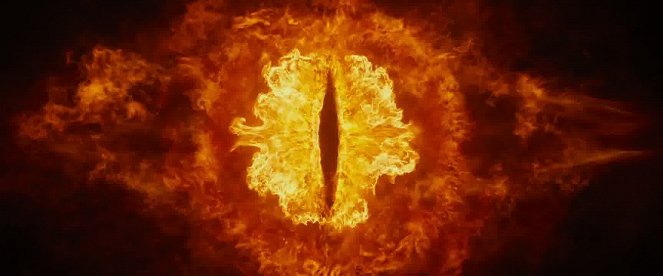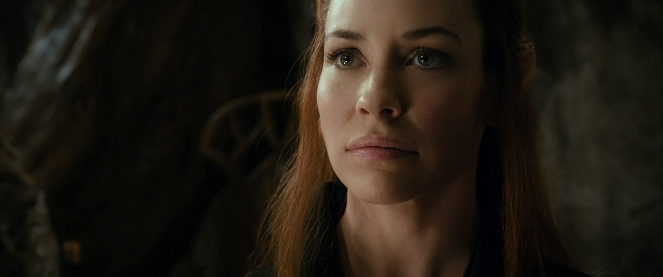Directed by:
Peter JacksonCinematography:
Andrew LesnieComposer:
Howard ShoreCast:
Martin Freeman, Ian McKellen, Benedict Cumberbatch, Luke Evans, Orlando Bloom, Evangeline Lilly, Richard Armitage, Graham McTavish, James Nesbitt, Ken Stott (more)VOD (5)
Plots(1)
The second of three epic instalments in director Peter Jackson's blockbuster prequel to The Lord of the Rings trilogy. Set in Middle-Earth 60 years before events in The Lord of the Rings, the story follows the adventures of Hobbit Bilbo Baggins (Martin Freeman), who, at the instigation of the wizard Gandalf (Ian McKellen), suddenly finds himself co-opted into joining a company of 13 Dwarves led by Thorin Oakenshield (Richard Armitage) to help reclaim the lost kingdom of the Lonely Mountain from the clutches of Smaug the dragon (voice of Benedict Cumberbatch). In this film, while Gandalf heads south on his own, Bilbo, Thorin and the Dwarves enter the treacherous Mirkwood Forest on their way to the mountain. When they reach Lake-town Bilbo will have to perform the role he was assigned at the start of the quest - to find a secret door that will lead him to the lair of the dragon... (Warner Bros. Home Entertainment)
(more)Videos (26)
Reviews (14)
So of course I went to see the Hobbit in the cinema, the very next day after it premiered. I don’t give a damn that I almost didn’t get up for work the next morning, because the film was three hours long, plus another half an hour of commercials and trailers, as well as a 15-minute break in the middle of the film. But I still have to say that I enjoyed much more than anything in a long time. The first Hobbit was kind of bland. Peter Jackson spent an hour and a half fooling around in Rivendell and the movie was over before it truly began. The second instalment, however, has some balls. In places, it reminded me of the second Lord of the Rings, where the majority of the movie took place during the Battle of Helm’s Deep. I must say Peter Jackson made some of the scenes with so much genius that they were beyond reproach. The barrel scene, for instance, will become an example that will teach young directors how to shoot their scenes in a dynamic fashion. I have never seen such a funny and at the same time action-packed and effective scene and I don’t know if I’ll ever see it again. Add in the amazing setting, amazing characters all of whom have their place in the story (and why wouldn’t they, when the entire Hobbit trilogy will run over nine hours) and above all Middle-earth! The same Middle-earth to which I return every time my imagination starts to fail me. It was a gorgeous, incredible experience. And I’m glad that this film addresses the issue of whether an elven girl should talk to a dwarf boy and whether they should or even could become friends. Such an issue lies at the core of all fantasy worlds, and whenever there is someone willing to address it, the only thing to be said is that such is the world we live in. This movie is so charming that I don’t know if I’m even able to wait a whole year for the next one. It ended so abruptly that I wasn’t able to get over it even a week later.
()
Tasted good. A mountain of gold and a dragon to boot, who wouldn’t like it? The second part of the story unfolds in a more lively and considerably darker tempo. Jackson enjoys his freedom and introduces a new storyline (that he could have easily left out) bringing minor items of news for those who have read the book, too. Comely Tauriel with the face of Evangeline Lilly has one of the most beautiful theme tunes that Shore has ever composed. Bilbo and his gang tumble through one disaster to the next, most impressively the confrontation with the bug, the barrel ride and the final encounter with the lord beneath the mountain. This year, Cumberbatch appears in negative roles (and this is the most powerful of them). I was delighted by Smaug’s dwelling which exceeded my expectations, like the dragon itself. The playful conversation, the action. Only interrupted by Gandalf’s preparations for the finale, but only very slightly. Really effective, accepting that it’s slightly drawn out. The ending provoked disgruntled silence, mumbling and finally “You must be joking!", but honestly they couldn’t have cut it short at a better moment. Next year all it’ll all work out I suspect that episode 3 is going to be a real massacre.
()
You're watching the film and say to yourself that everything is absolutely fine, exactly as expected. It's grand, ambitious, and well made. However, this “demo” has a lot less emotion and lacks the fatefulness that "full version" has. The Lord of the Rings is much more mature and sophisticated in literature, and the same goes for the movies. So, technically, it's right, and yet I can't give it a full score. From the second part, you can feel the gloom and that the finale will be grand. Maybe they will succeed in that one.
()
It left the world and took its flight / over the wide seas of the night. / The moon set sail upon the gale, / and stars were fanned to leaping light. Favorite scenes from the book elevated to adrenaline peaks, incredibly functional new characters, and references from other Tolkien works finally depicted in a way that we don't have to grasp for every footnote. And when I was afraid that the tempo might suffer with the arrival at Esgaroth, I didn't realize I would receive such a hearty dose of Smaug that would surpass everything and make The Hobbit: The Desolation of Smaug the film of the year again. Okay, I'm lying, I did suspect the last part. And I had missed that atmosphere of fantasy, adventure, and this time even real fear and courage much more throughout the year than I was willing to admit.
()
Since the first part of The Hobbit trilogy was one long exposition, the second part doesn’t have to spend any time on introducing the main characters and explaining their motivations, so it is unconstrained in telling its story. The livelier and more focused (though again episodic) narrative lacks a satisfying conclusion. Instead of bringing at least some of the storylines to a close in the climax, The Desolation of Smaug ends with just another complication. ___ Smaug seems like an episode of an epic fantasy series or an RPG, but one played by someone else who definitely isn’t going to skip any cut-scenes. Like in role-playing games, we have before us a group of adventurers who gain new experience through encounters with increasingly powerful enemies and then ultimately come face-to-face with the ultimate boss (who, of course, can’t be killed in conventional combat). In retrospect, one gets the impression that the main objective of the narrative was always the confrontation with the dragon, because nothing else actually happens in the film. Though again long and never as clear as anything done by Spielberg (whose Tintin is brought to mind by the whitewater ride), the action sequences are not there solely for their own sake. Rather, they serve for developing the already known characters (Bilbo becomes a bigger hero and more dependent on the ring), for introducing (old-)new characters (Legolas, Tauriel) and for demonstrating the courage of young, uprooted and seemingly powerless peoples to stand up to a great enemy, which I believe was an important motif for Tolkien, given the era in which he wrote his books. ___ The creative rendering of Middle Earth is also like that of a video game, as CGI animation is used to a greater extent than the authentic New Zealand landscape. The bookish illustrations would have been captivating and I could have looked at them for tens of minutes, but when combined with live-action characters, the setting seems artificial. Not to mention the Orcs, which were apparently copied directly from action-adventure games like God of War (the ease with which the goblin warriors are decapitated would seem to correspond to their video-game origins). ___ The characters whom the protagonists encounter on their journey mostly serve to impart valuable information to the adventurers or provide asylum and weaponry. Take, for example, Beorn. Though he will most likely appear in The Battle of the Five Armies, he is used rather purposefully in The Desolation of Smaug. Conversely, the mayor of Esgaroth, attaining prosperity at the cost of his citizens’ freedom, comes across merely as a dubious attempt to update the narrative with allusions to the current corruption of politics. It is necessary to acknowledge that Jackson managed to justify the presence here of other characters (Azog, Radagast) on whom seemingly needless attention was focused in An Unexpected Journey. It similarly becomes apparent why we had to find out that Bilbo is good at riddles (discovery of the keyhole). ___ The motif of the lost home is weakened, as its bearers are more or less only dwarves, not Bilbo, who is newly obsessed mainly with his ring. I believe that we spent the first forty minutes of An Unexpected Journey in Hobbiton for the sake of the possibility to use the contrast between the Hobbit’s previous comfort and his current discomfort. What came to be the key motif was the egocentrism of whole peoples (elves) and individuals (Thorin) and greed personified by Smaug, which is by far the most well-written character of the entire film. ___ The Desolation of Smaug gains momentum as the linear narrative branches into two and then three storylines. Thanks to that, the final act is as dynamic as the sweeping action sequences in Nolan’s films (though Jackson cuts between individual action scenes with greater deliberation) and, at the same time, emotionally engaging because at least in Tauriel’s case, we do not know what fate awaits her (though because she is an elf, she cannot die). The proliferation of the final confrontations with evil testifies to Jackson’s concept of The Hobbit not as the adventure of a single hero, but as an “ensemble piece”. For a team-oriented action movie in which particularly the abilities of the individual characters and their contribution to the accomplishment of the mission(s) are important (see the exemplary cooperation between Bilbo and the dwarves in the climax), it is hard to criticise the film for its emotional coldness and indifference toward individual characters. At any rate, I don’t find it pleasing, as I believe that many of those involved would deserve a separate film. ___ From the perspective of satisfying storytelling, the doubly open-ended (i.e. without a beginning or an end) The Desolation of Smaug is far from being a useless film. Thanks to the logistically flawless introduction of new characters and changing settings, it holds our attention, but it doesn’t hold up as a stand-alone story. The Desolation of Smaug does a better job than the good-natured An Unexpected Journey of giving the impression that “something” sinister is in the air. At the same time, however, it doesn’t have enough material to fully tell a story and, though it looks like a lively action experience from the outside, it paradoxically spends most of its runtime just treading water. 75%
()
(less)
(more)



Ads